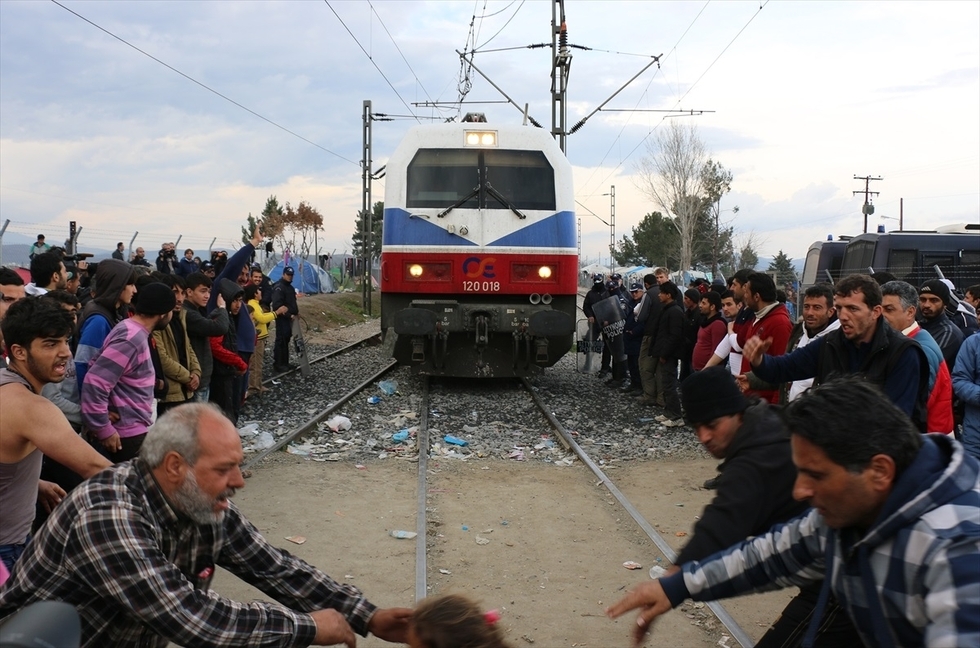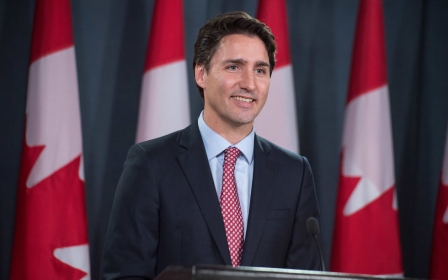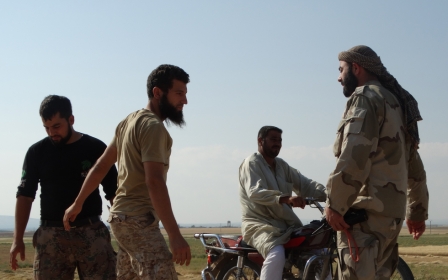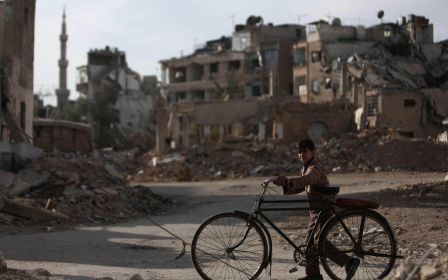Macedonia 'completely' shuts border as EU and Ankara trade barbs

The Macedonian authorities on Wednesday “completely” shut the border to asylum seekers and migrants after other Balkan countries said they would also enact further restrictions.
Until now Skopje had been letting in some 150 people a day which had caused some 14,000 refugees to pile up on the Greek side of the border, but had kept hopes alive for Syrians and Iraqis who, unlike people from Afghanistan and those deemed economic migrants, were being allowed through.
"We have completely closed the border," one police official told the Reuters news agency.
On Tuesday Slovenia announced that it would no longer let in anyone without a valid European Union entry visa, cutting off the Western Balkan migration route where more than 120,000 people have already passed this year in hopes of accessing wealthier EU states.
The closure comes as the Hungarian government announced that it would deploy an additional 1,500 troops and police officers on its border with Serbia where some 1,500 refugees and migrants are believe to be stranded in the wake of the border closures.
The EU is currently embroiled in negotiations with Turkey over how to try and solve the refugee crisis, with a final draft due next week.
However, tensions over what the final text should include are high, with a war of words breaking out on Wednesday.
European Parliament lawmakers accused the EU on Wednesday of giving Turkish President Recep Tayyip Erdogan the "keys to the gates of Europe" through a migration crisis deal with Ankara.
"It is a deal with Turkey in which we outsource our problems," centrist MEP and former Belgian prime minister Guy Verhofstadt said in Strasbourg.
"A deal in which we are giving in fact the entrance keys, the keys to the gates of Europe, in the hands of Turkey, of the successors of the Ottoman Empire, to Erdogan, I should even say maybe to Sultan Erdogan. He shall now decide on the entrance to the European Union."
The debate became so bad-tempered that an MEP from Greece's far-right Golden Dawn party was thrown out of the chamber for comparing Turkish people to dogs.
At a summit on Monday European Union leaders appeared to agree on a framework deal that would introduce a "one-for-one" swap for Syrian refugees by forcing Turkey to take back anyone who arrived in Greece if the EU pledged to resettle an equal number of refugees.
The deal would also reportedly double the aid for Ankara from three to six billion euros ($3.3bn – $6.6bn). The European Union and Turkey clinched a deal in November for three billion euros ($3.3 billion) in funds for refugees in return for Ankara's cooperation in tackling the refugee crisis, unprecedented in the continent's history since World War II.
Manfred Weber, the leader of the biggest group in the European Parliament, the centre-right European People's Party, said that the EU should not give a "blank cheque" to Turkey.
He also condemned the "unacceptable" crackdown by Turkish authorities on the country's leading anti-Erdogan newspaper.
But Turkey has firmly rejected the criticism and said that it is not “begging” for EU money.
"We see the unfair accusations targeting Turkey... It's as if this money is given to Turkey,” said Turkish Foreign Minister Mevlut Cavusoglu on Wednesday, defending the decision to ask for more money.
“It is as if Turkey is begging for money," Cavusoglu told a news conference in Ankara, quoted by local media.
Turkey is hosting some 2.7 million Syrians fleeing the five-year war in their homeland.
New MEE newsletter: Jerusalem Dispatch
Sign up to get the latest insights and analysis on Israel-Palestine, alongside Turkey Unpacked and other MEE newsletters
Middle East Eye delivers independent and unrivalled coverage and analysis of the Middle East, North Africa and beyond. To learn more about republishing this content and the associated fees, please fill out this form. More about MEE can be found here.




